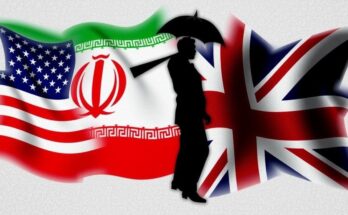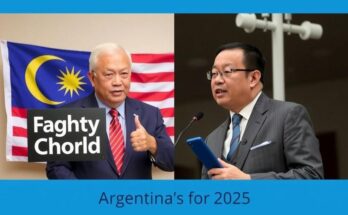The Democratic Republic of the Congo is facing a severe internal displacement crisis, with 6.5 million people displaced, mainly due to conflict and violence from non-state armed groups. Disinformation poses a significant barrier to the World Food Programme’s humanitarian operations, jeopardizing food distribution and staff safety. Effective communication, community engagement, and targeted training programs are essential strategies to counter misinformation and build trust within affected populations.
The Democratic Republic of the Congo (DRC) faces one of the largest internal displacement crises in the world, with approximately 6.5 million individuals displaced primarily across four eastern provinces afflicted by violent conflict and the presence of non-state armed groups. However, the humanitarian operations in the region face a significant challenge beyond the immediate threats of conflict: disinformation. Wilfred Nkwambi, the head of the World Food Programme’s (WFP) northeastern Goma area office in North Kivu province, elaborates on this pressing issue. Disinformation can severely threaten humanitarian operations by hindering the safe and effective delivery of assistance. The WFP requires ongoing engagement with a variety of stakeholders, including combatants and community leaders, to secure favorable conditions for humanitarian access. However, the intentional spread of false information through social media and local rumors can lead to attacks on WFP personnel, undermine the distribution of food supplies, and ultimately jeopardize relief efforts. Compounding these challenges, the rise of social media has placed WFP operations under increased scrutiny, eroding trust in international organizations. Local populations demand to see tangible impacts from humanitarian efforts, which are frequently overshadowed by misleading information circulating in their communities. Disinformation can exacerbate existing conflicts, making it imperative for WFP to address this problem head-on. To combat disinformation, effective communication initiatives are essential. WFP focuses on engaging communities to effectively convey vital messages and enhance their conflict sensitivity. For instance, when a donation of wheat arrived, a staple that was unfamiliar to families used to maize flour, WFP organized cooking demonstrations to foster acceptance of the new food. Listening to and adapting to community needs is a cornerstone of their approach. Monitoring social media platforms allows WFP to detect and counter misinformation proactively. Sensitization campaigns aimed at youth and local authorities have been instrumental in recovering vehicles and ensuring the safe transport of food supplies amidst increasing threats to humanitarian convoys. Partnerships with local media, such as community radio stations, assist in spreading accurate information to remote areas, further building trust within the affected populations. Training programs targeting local communities, civil society organizations, and media representatives are fundamental to fostering a comprehensive understanding of WFP operations. Moreover, WFP emphasizes regular training for its personnel on protection and communication, preparing them to respond effectively to varied scenarios encountered in the field.
The Democratic Republic of the Congo is experiencing a humanitarian crisis marked by large-scale internal displacement due to conflict and insecurity, particularly in the eastern provinces. With millions of people uprooted, the World Food Programme is working tirelessly to deliver aid. However, the operations are increasingly threatened by disinformation, which complicates relationships with local communities and influences perceptions of humanitarian efforts. Understanding the dynamics of misinformation is crucial for formulating strategies that protect humanitarian access and ensure the safety of aid workers.
In conclusion, disinformation poses a significant challenge to humanitarian efforts in the Democratic Republic of the Congo, impacting the safety of operations and the delivery of essential aid. Implementing effective communication strategies, fostering community engagement, and preemptively addressing misinformation are vital components of the World Food Programme’s efforts to maintain trust and facilitate humanitarian access. Continued training and outreach highlight the organization’s commitment to adapting to the needs of the communities they serve, ultimately enhancing the effectiveness of their operations even amidst adversity.
Original Source: www.wfp.org




